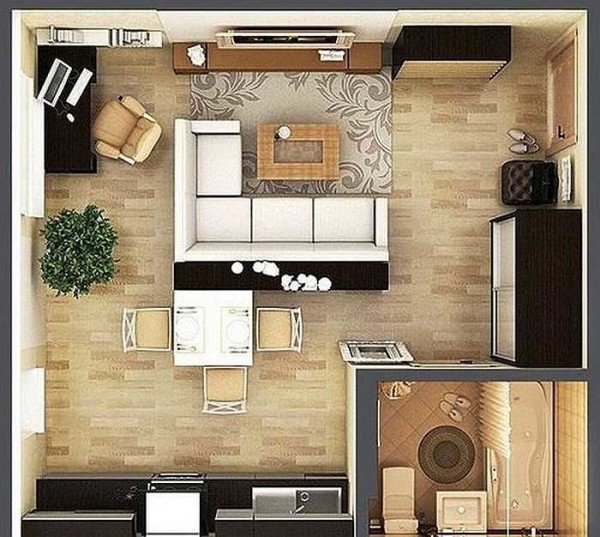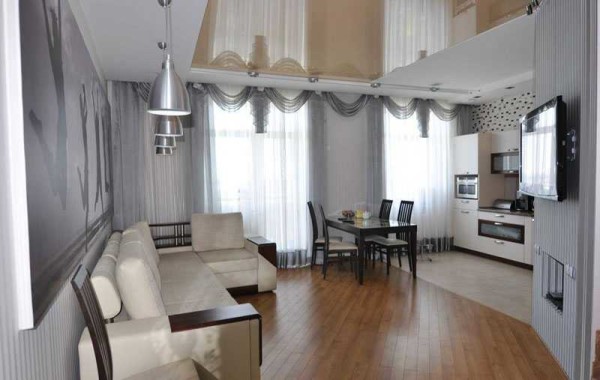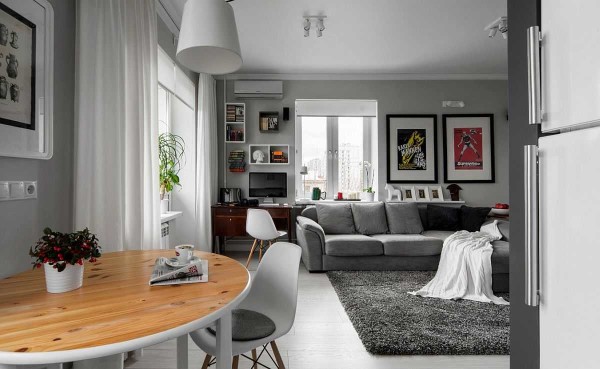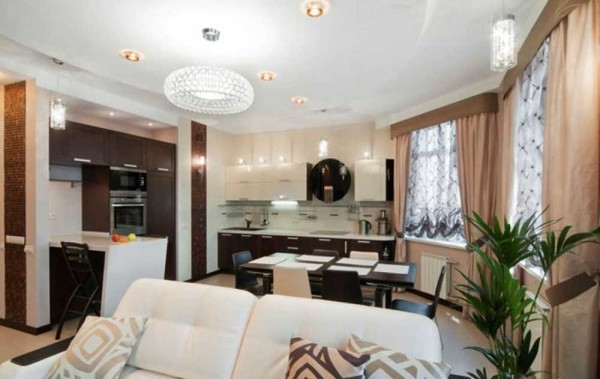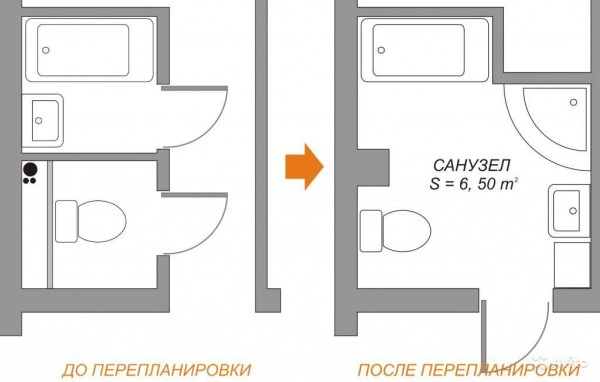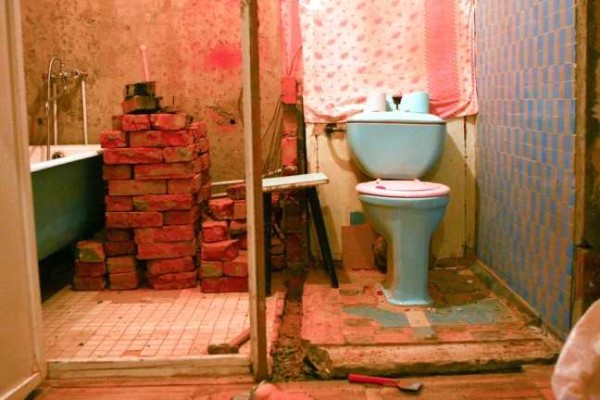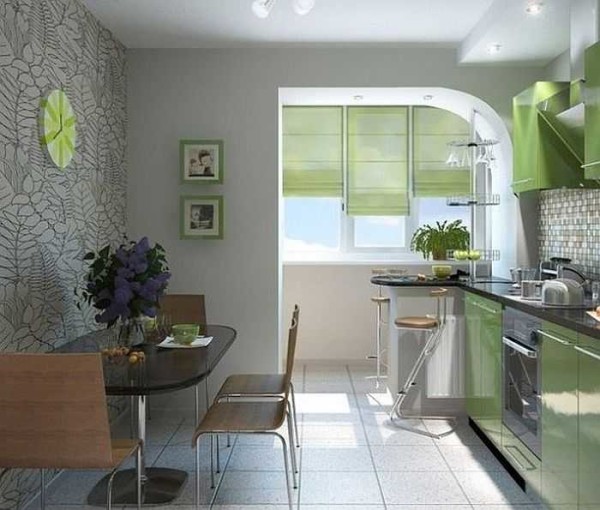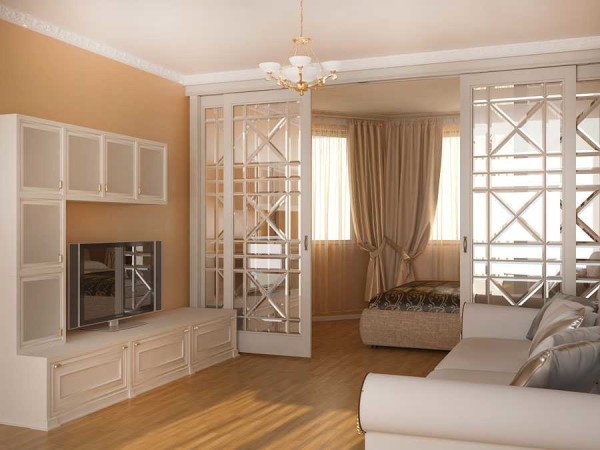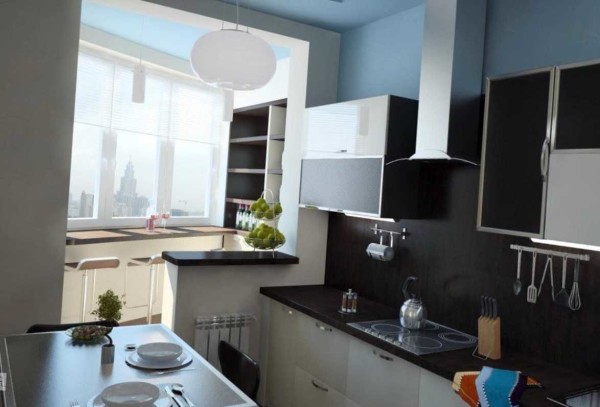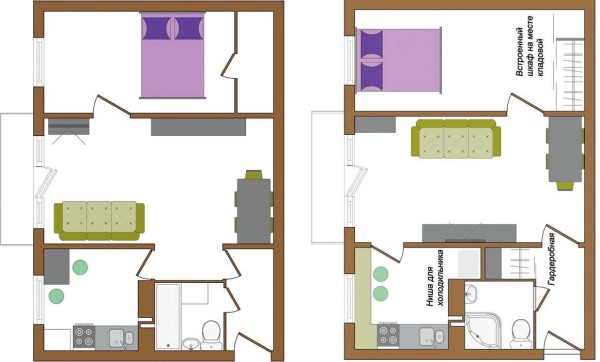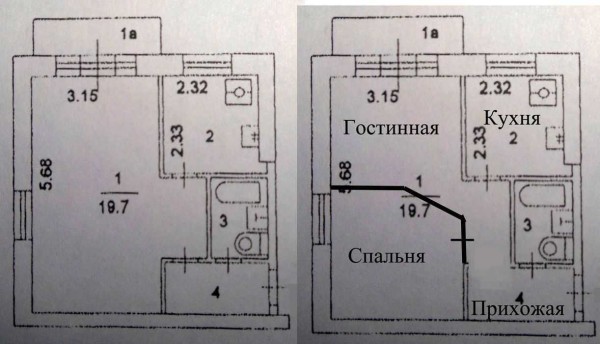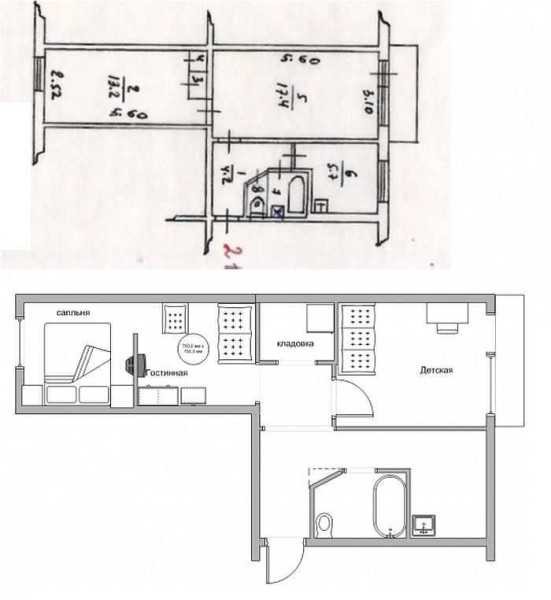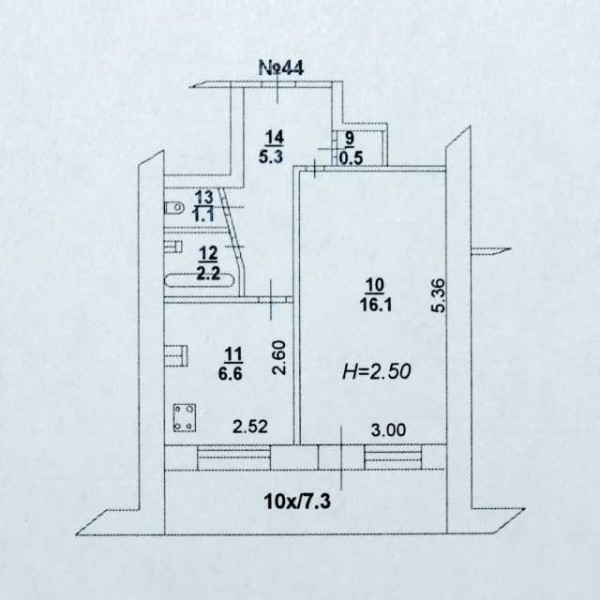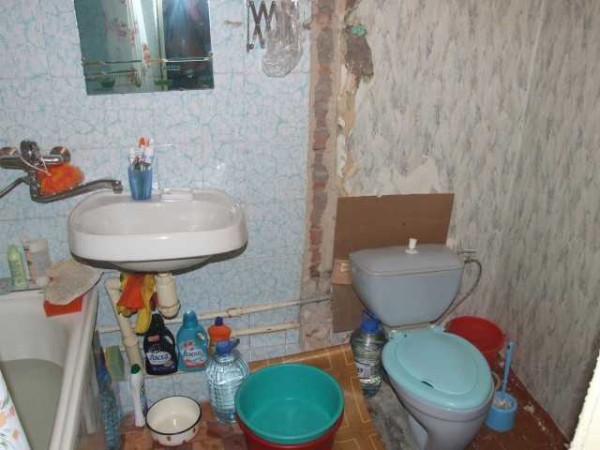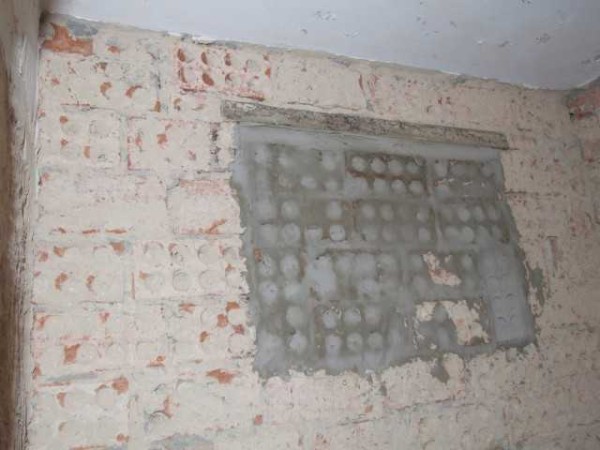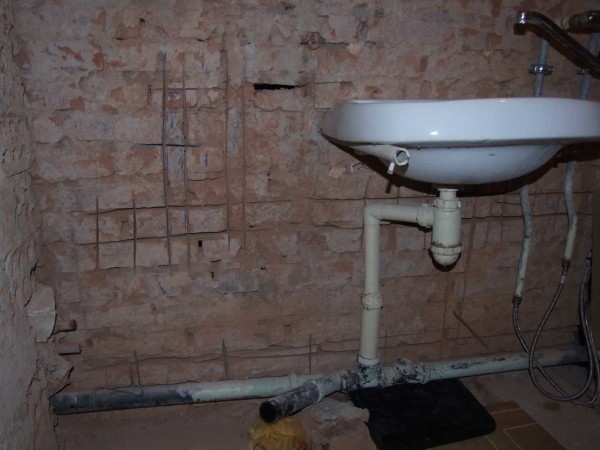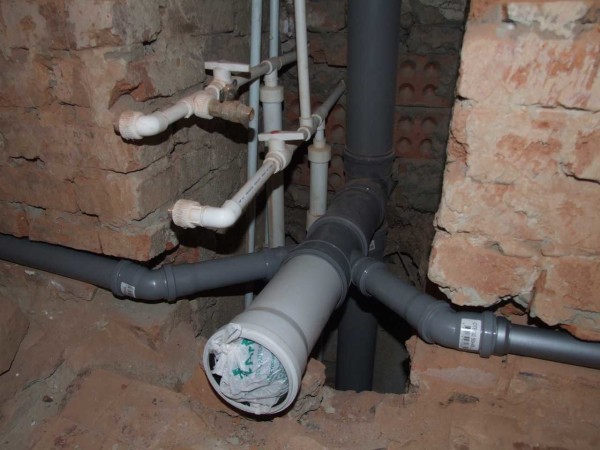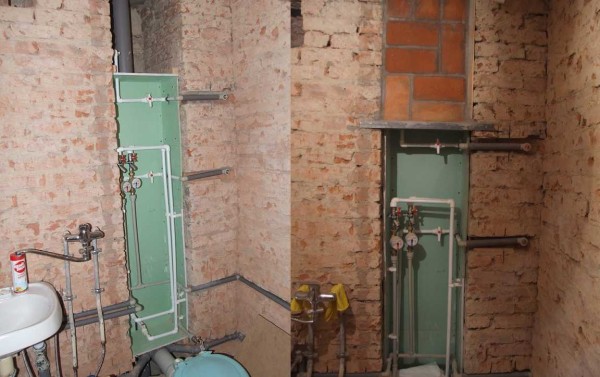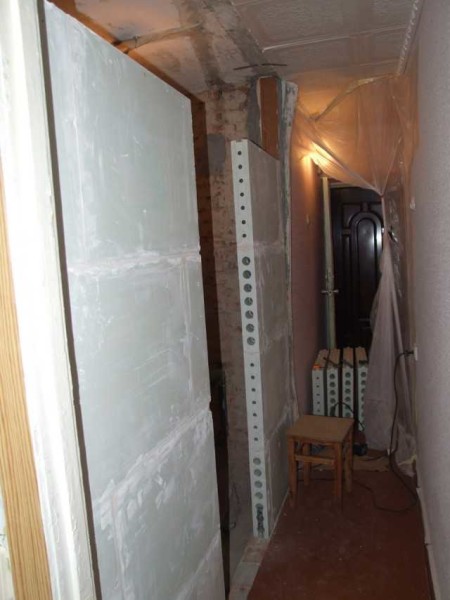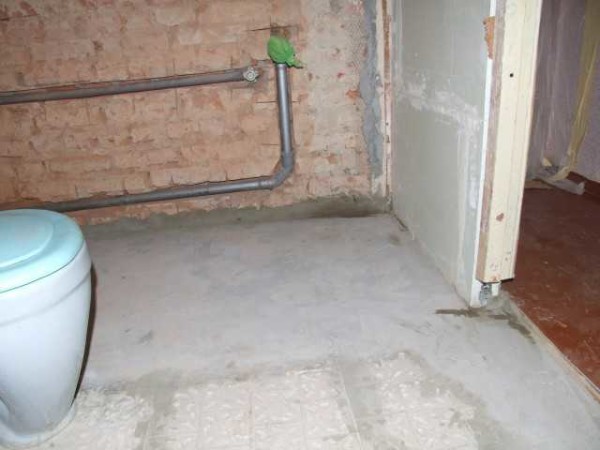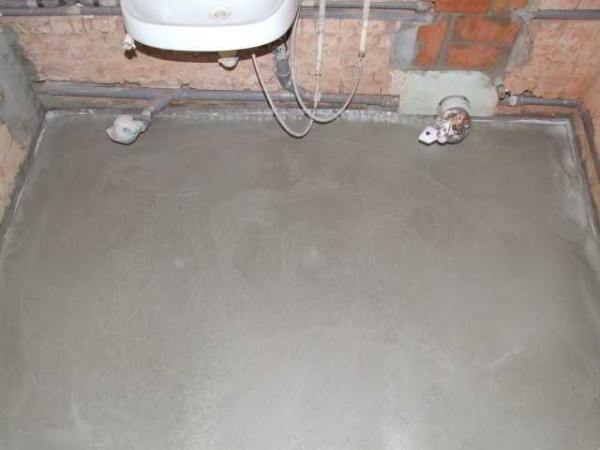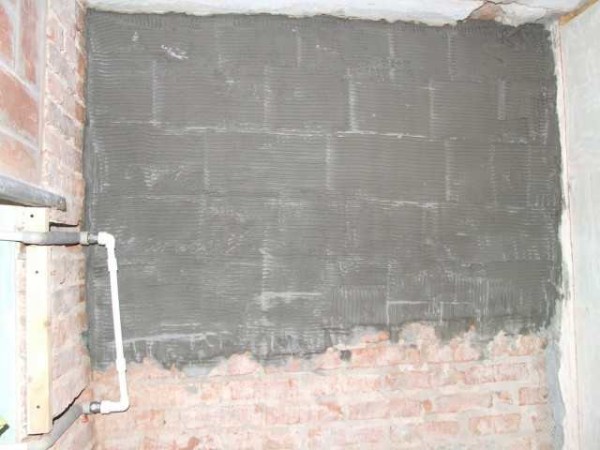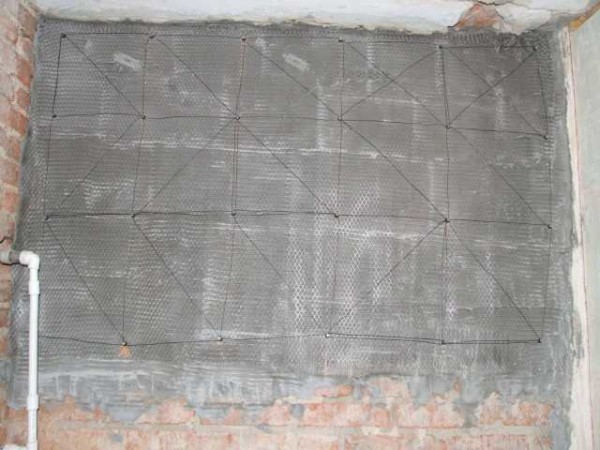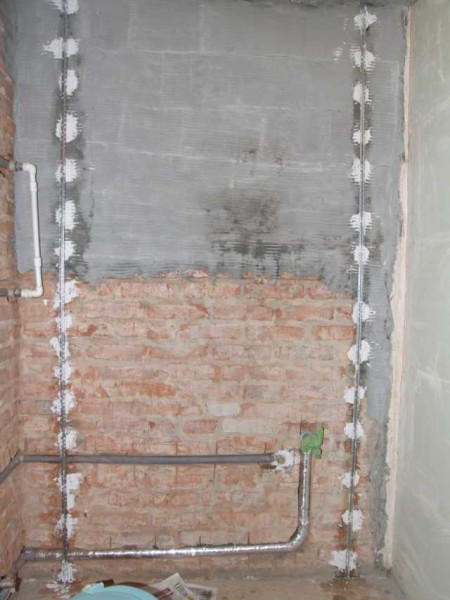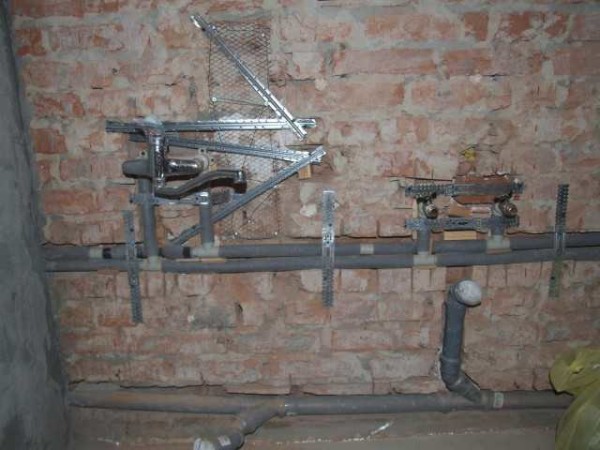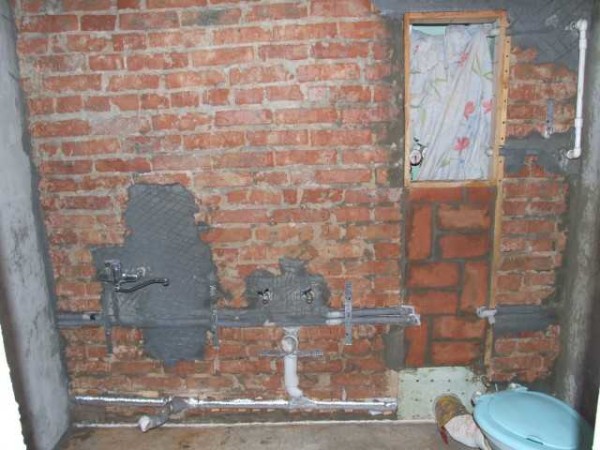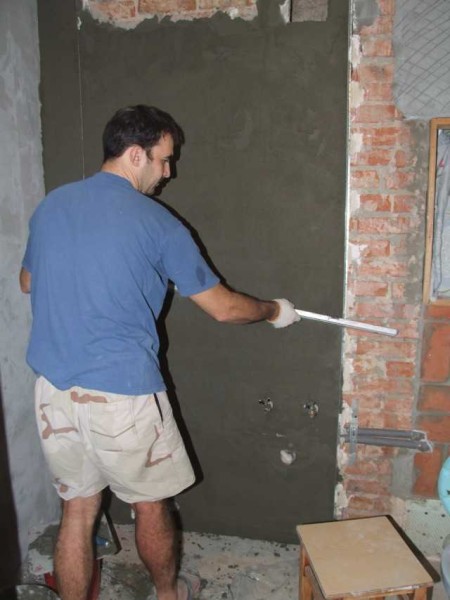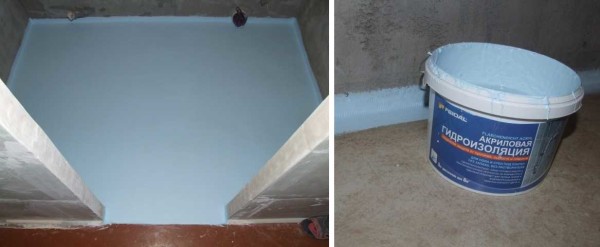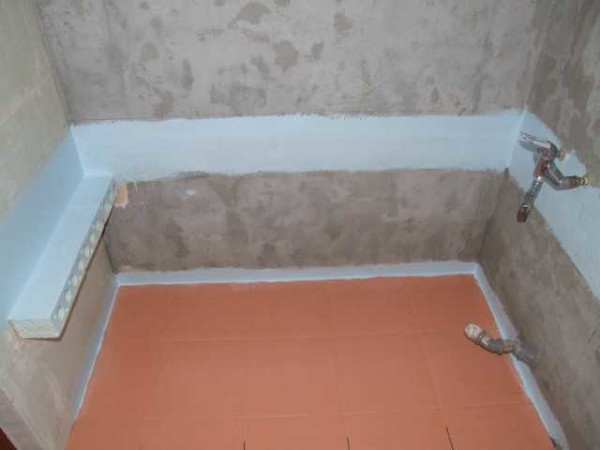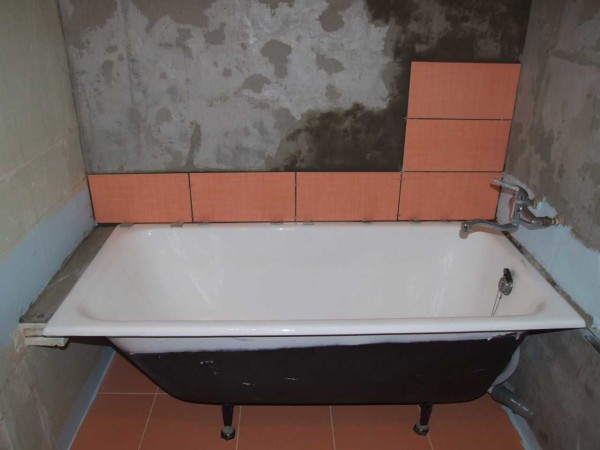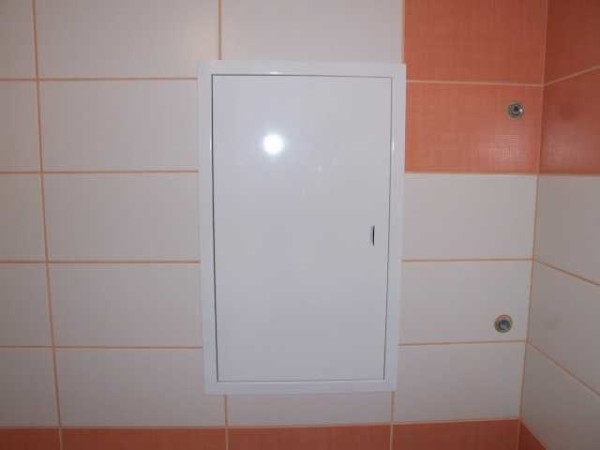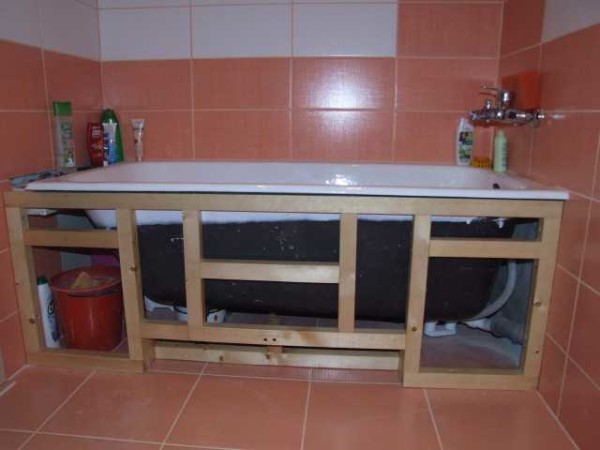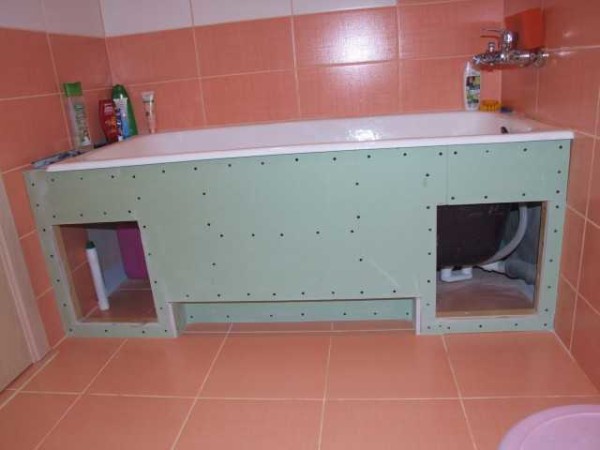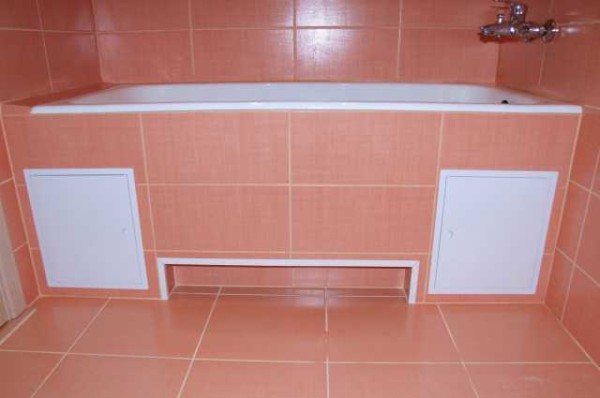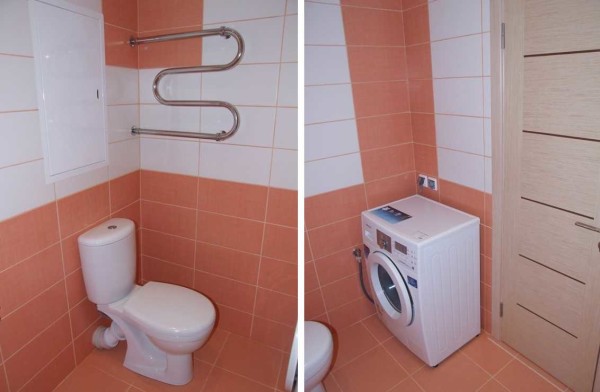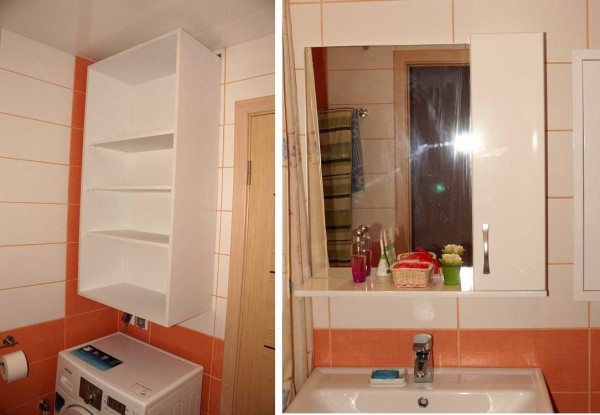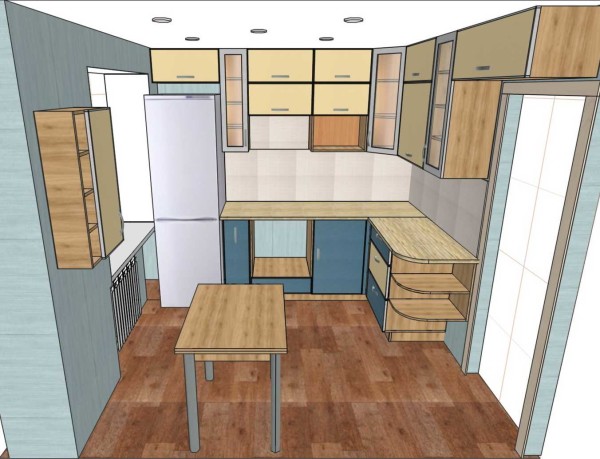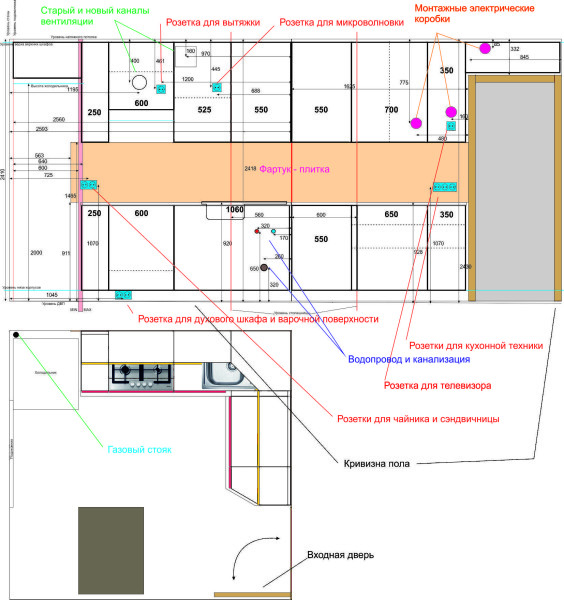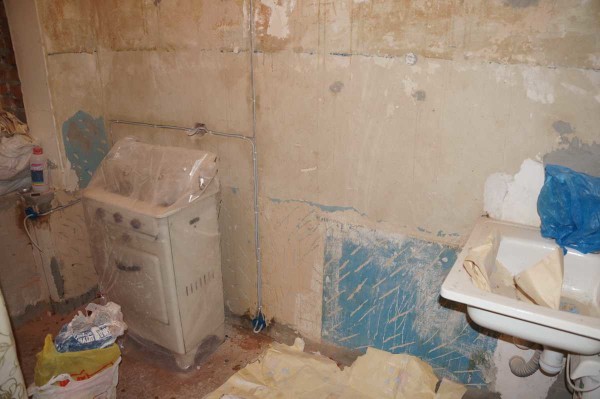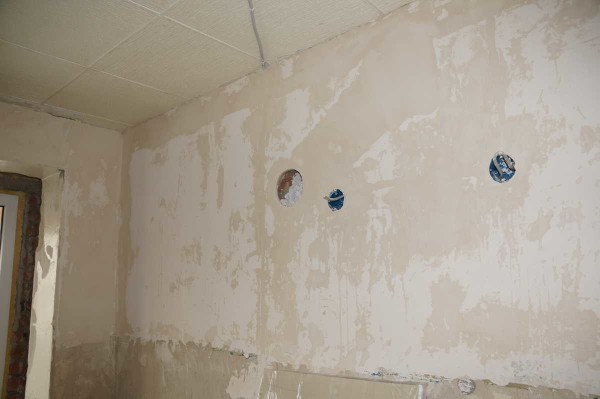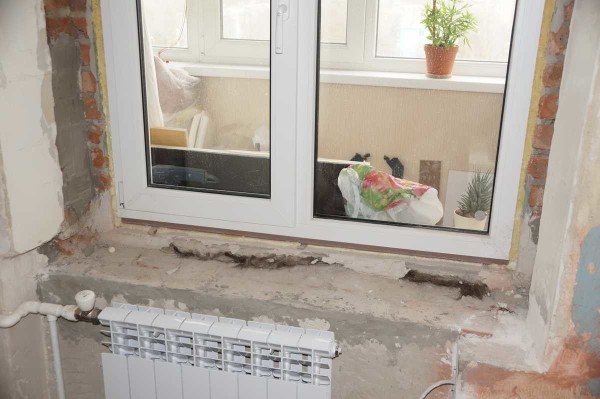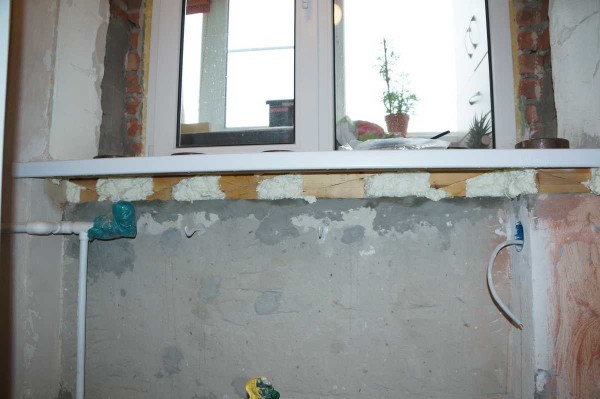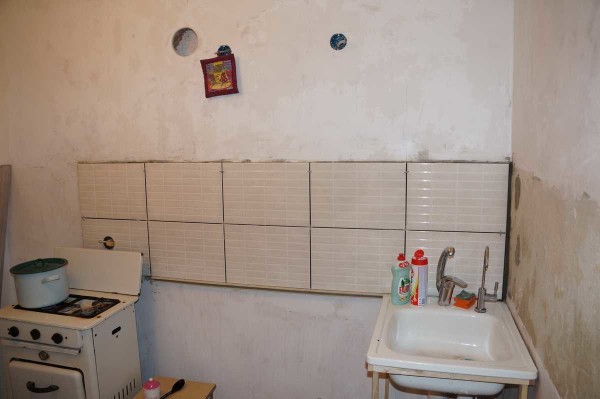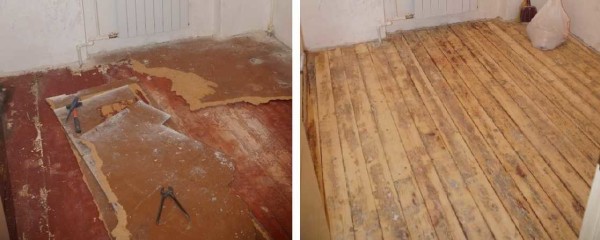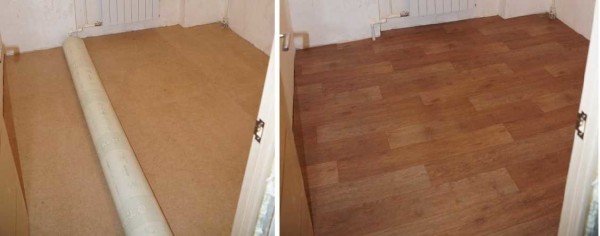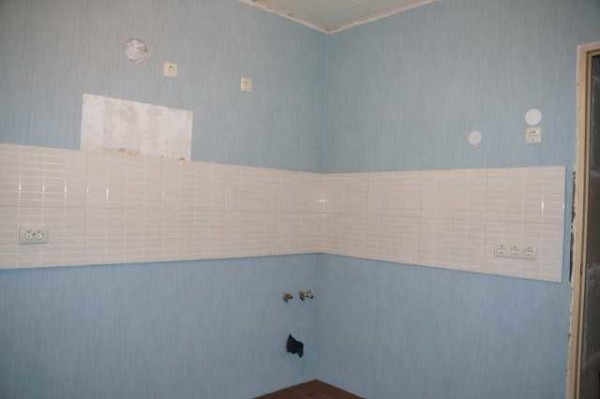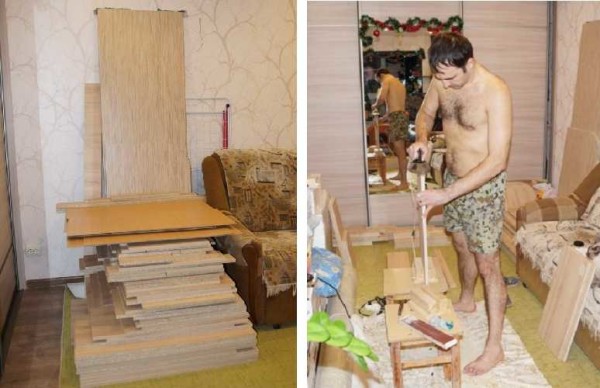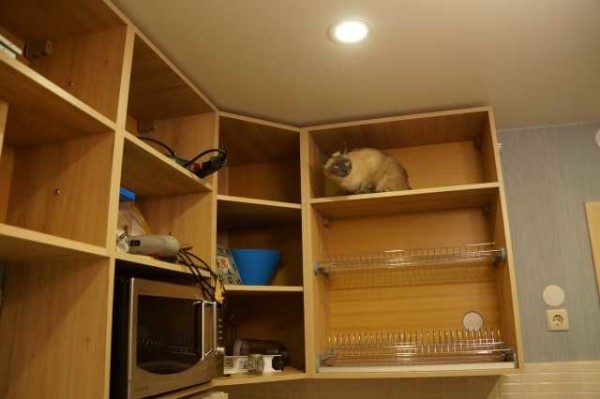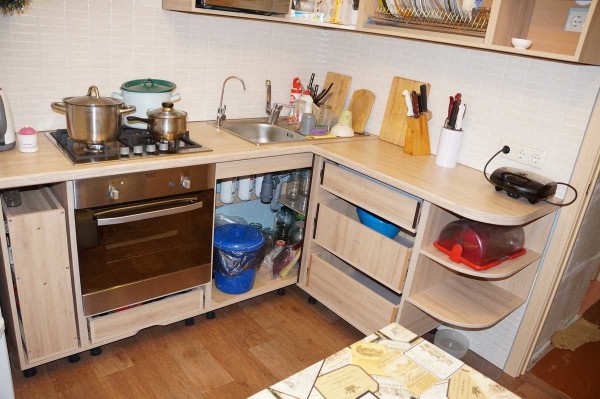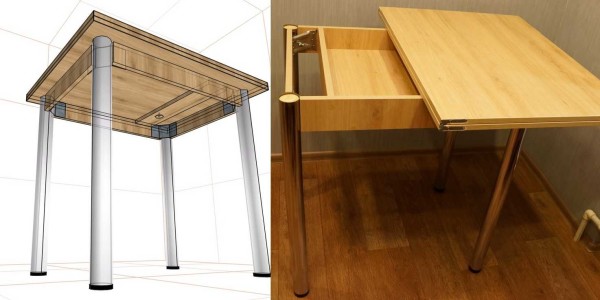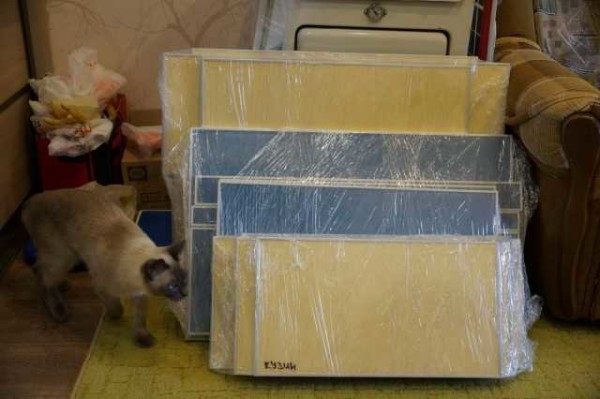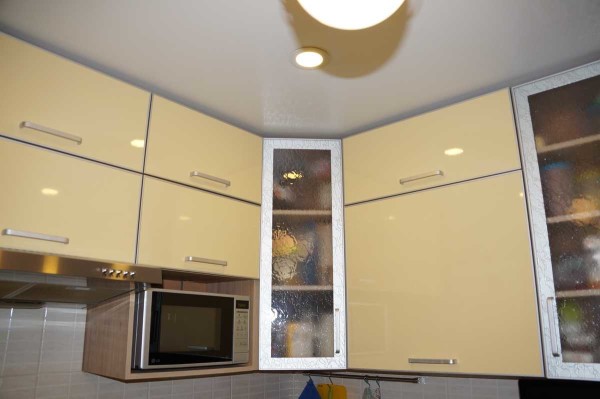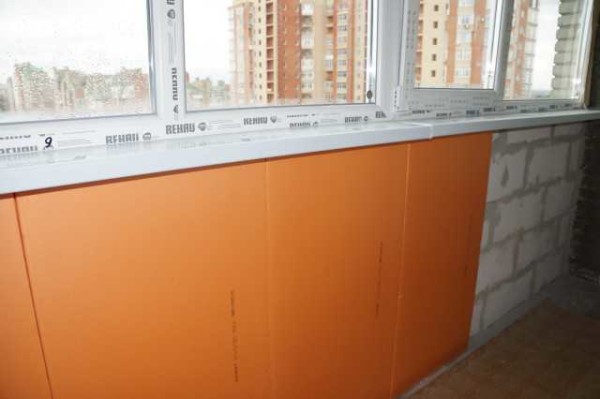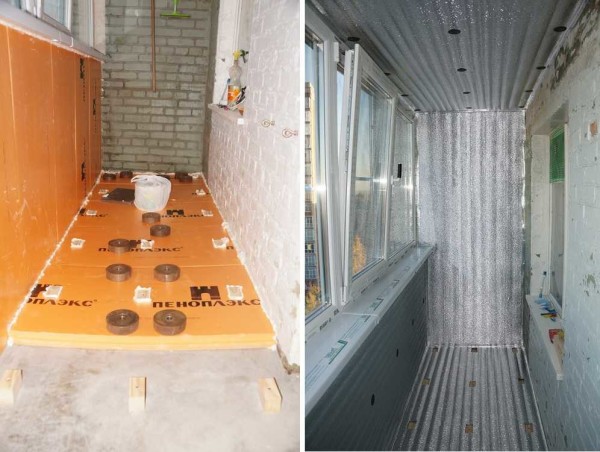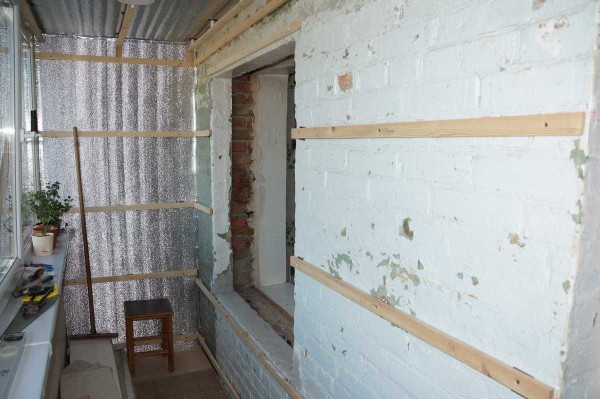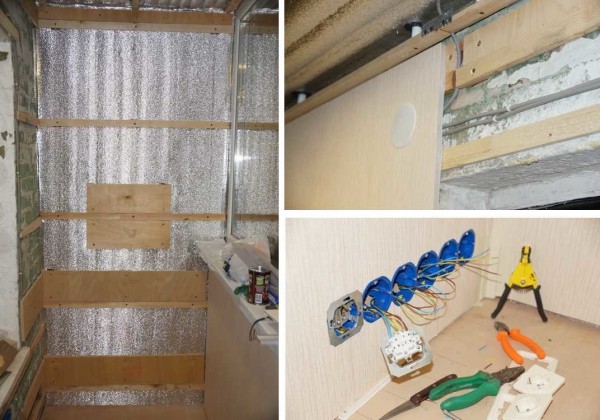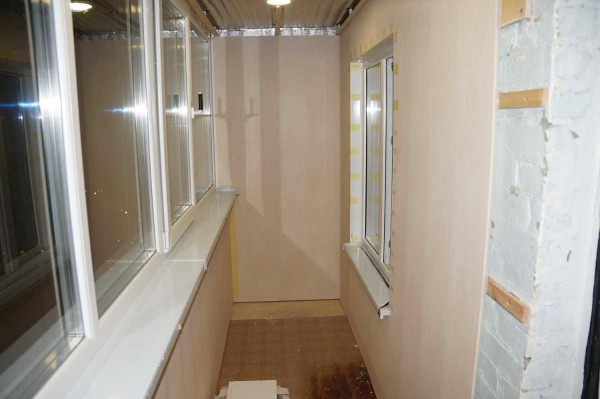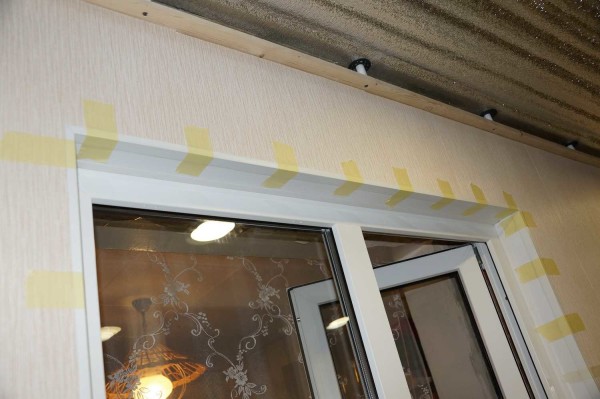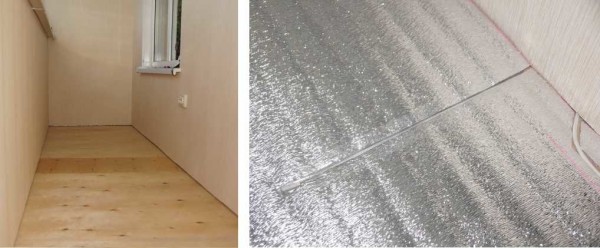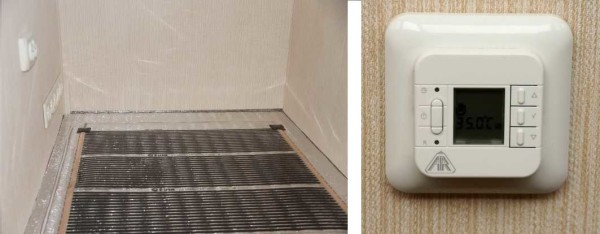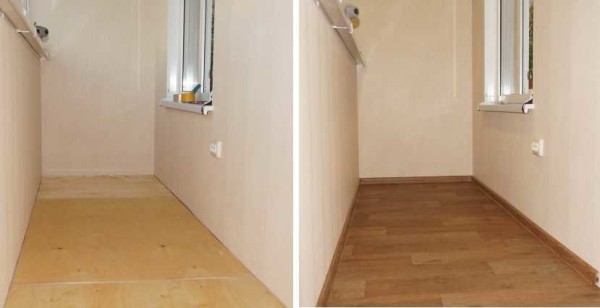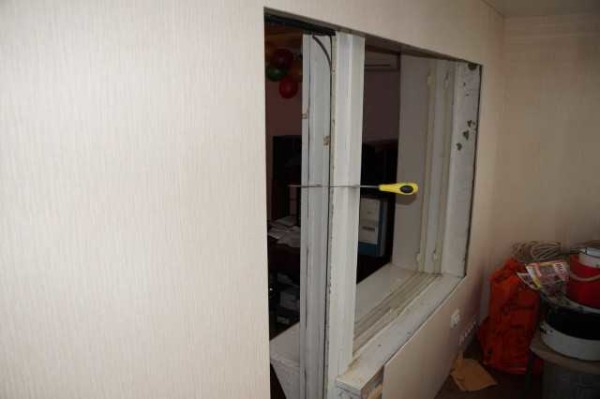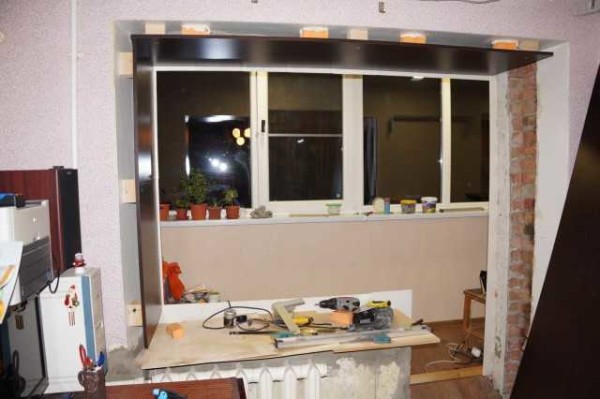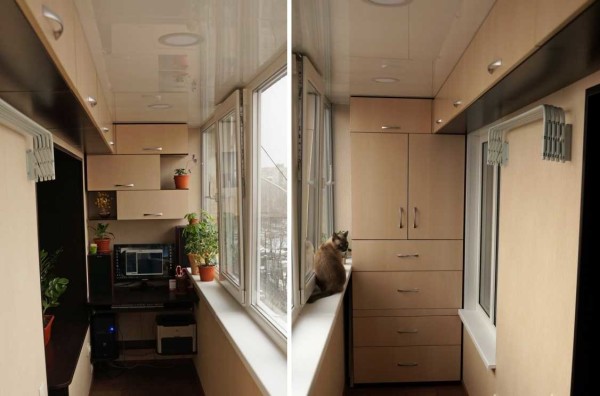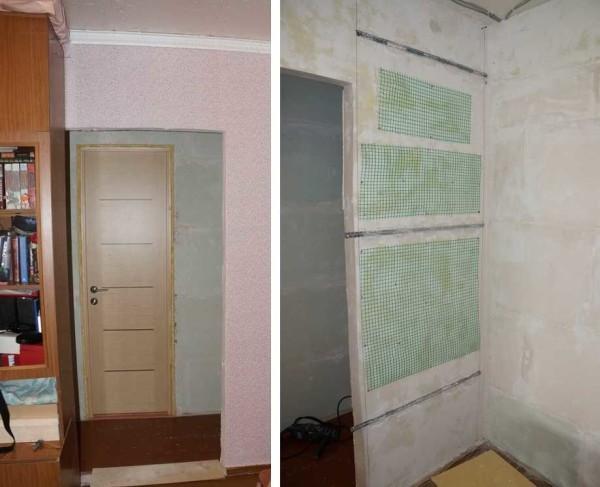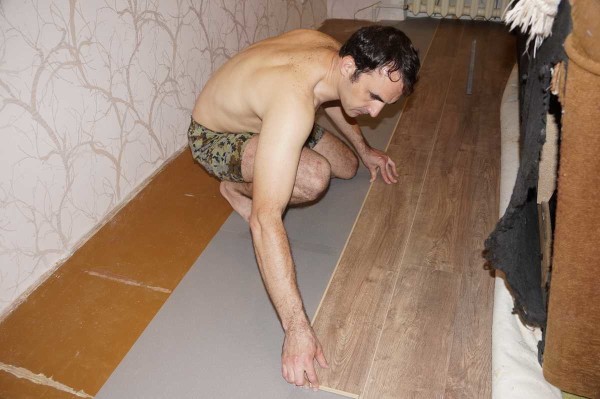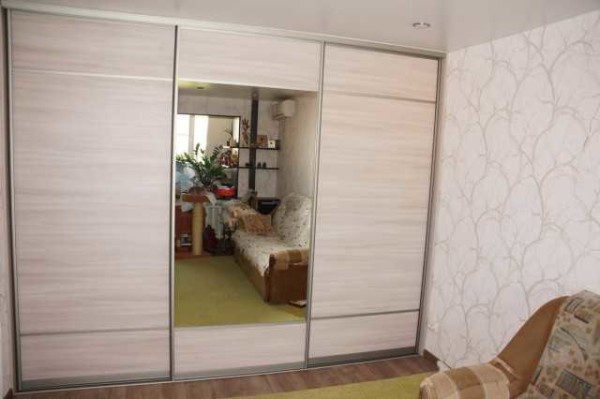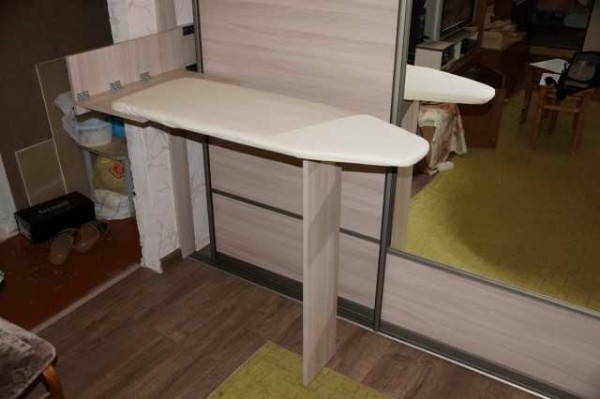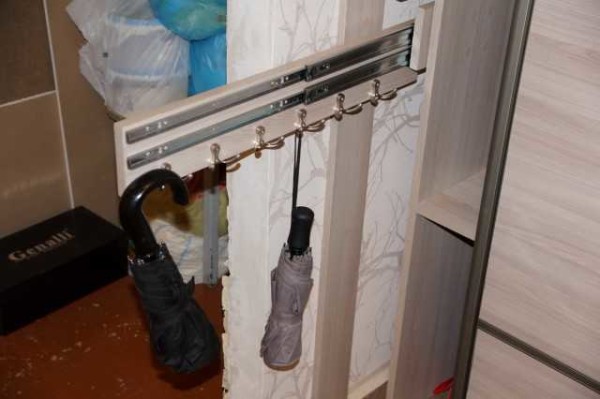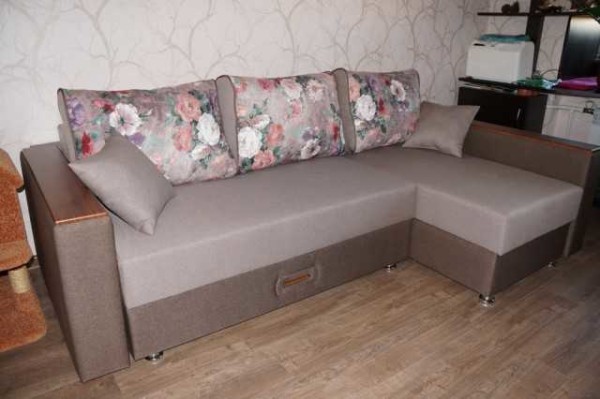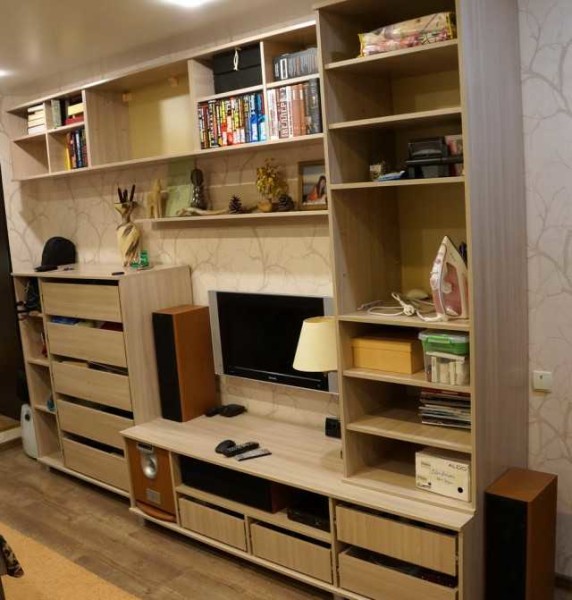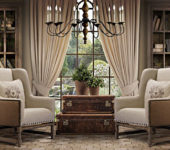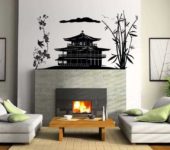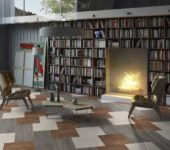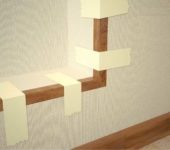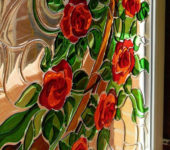Small apartment renovation ideas + photo report
Most of the population of our country has small apartments. Both in old houses and in new buildings, they are the first to buy: prices are more acceptable. After buying such a home, the question immediately arises of how to make repairs in a small apartment so that it is comfortable, functional and beautiful. This is not an easy task, but since such a task occurs very often, a number of solutions have been developed for different tastes and requests. They will be discussed.
The content of the article
Make a studio apartment
In recent years, studio apartments have been popular among young people (and not only). These are rooms with a minimum of partitions. Only a toilet with a bath, and sometimes a bedroom, remain highlighted. All other walls are demolished completely (if they are not load-bearing) or partially.
There are several subtleties that you need to know with this type of repair:
- You need to find out if your apartment has load-bearing walls (go to the maintenance organization, they have floor plans on which everything is painted). If they are, they cannot be destroyed. Such partitions can be partially removed by taking measures to strengthen the remaining fragments. The project of such a redevelopment is ordered in specialized bureaus.
- Removing the walls separating the kitchen is only possible if it is equipped with an electric stove. If there is gas equipment, partitions are not allowed to be removed. This point can be circumvented. Make a sliding partition that can be folded in and out. (Read about installing sliding doors here).
- Moving or expanding the area of wet rooms is possible only to the place of technical rooms (corridor, storage rooms, closets). It is impossible to expand them at the expense of living space.
In any case, the redevelopment with the demolition of the walls must be approved. For this, a project of work is ordered, it is signed by the architecture department and only then the repair itself begins. Then you won't have any problems.
pros
The positive aspects of converting an ordinary apartment into a studio apartment include the following points:
- You get a spacious room instead of several small rooms.
- The usable area increases. It only seems that the walls take up little space. Calculate: a wall 3.5 m long and 20 cm wide (narrow wall) occupies an area of 3.5 * 0.2 = 0.7 square meters. This is one very small wall.
- For a large room, you can choose any style, apply interesting ideas.
In general, such a repair in a small apartment will visually (and actually) make it bigger. Moreover, the functionality does not suffer at all, and life becomes more convenient.
disadvantages
Disadvantages are indispensable. The first is the lack of privacy. If the apartment is intended for one person, he will feel comfortable in it. If there are two to live, you need to be prepared for the fact that you are constantly in front of each other.
The second is the spread of the smells of their kitchen. The absence of partitions leads to the fact that all aromas from the kitchen freely penetrate into all corners of the apartment. A proper ventilation system and a powerful hood can save the day.
The third is the need to maintain perfect order. Immediately, from the threshold, you see all or almost all of the space.So there can be no disorder.
The decision to turn an apartment into a studio is radical and not suitable for everyone. The lack of separate rooms is unusual for us. But there are other ways to make repairs in a small apartment, improving its functionality.
Combine bathroom
Most of the standard-layout apartments suffer from one drawback: a very small area allotted for a bathroom - a toilet and a bathroom. Moreover, for some reason, initially these two rooms are separate. As a result, both the bathroom and the toilet cannot be turned around and there is definitely nothing additional to put (a washing machine and a water heater, for example). Correct the situation by removing the partition and making it joint.
The specific plan for the alteration depends on a similar layout, but the general idea is the same: destroy the partition, remove one of the doors. In some cases, it turns out to slightly increase the area of the bathroom due to the area "stolen" from the corridor (as in the photo above).
As already mentioned above, it is possible to increase the area of wet rooms only at the expense of technical rooms. At the same time, during the repair, it is necessary to especially carefully approach the issues of waterproofing. It is necessary to apply several hydrophobic layers (at least 3).
pros
The advantages of converting a bathroom into a combined one are quite obvious. Its area increases, the number of doors decreases. The room becomes more functional. It is useless to argue about whether it is convenient or not. For some, this option is suitable, for others it is not.
Minuses
They can manifest themselves in "densely populated" apartments, when everyone is going to work or school at the same time. If one of the family members stays in the bathroom for a long time, the rest get nervous.
Warming and joining a balcony or loggia
The appearance of new heat-insulating materials makes it possible to qualitatively insulate a balcony / loggia, glaze it and, removing the window block, connect it to the room. To make sure it is warm on the former balcony, heating is carried out there. Just note that the removal of central heating radiators there is strictly prohibited. In this case, electric floor heating can be done. Since the areas are small, the bills will also not be huge (with proper insulation).
Please note that gas appliances and plumbing cannot be taken out onto balconies and loggias. This is true for the kitchen. You can put several cabinets, a refrigerator, take out the dining area, but the gas stove and sink should remain in the "main" area.
Another important point concerning the repair itself. When combining a room with a balcony or loggia, only that part of the wall that was under the window block can be removed. It is absolutely impossible to break the remaining pieces of the wall. These "remnants" are part of the supporting structure and without them the house can simply collapse.
pros
The advantages of such a solution are obvious. Such repairs in a small apartment lead to the fact that the usable area increases significantly. This is especially noticeable in small rooms. You had a kitchen of 6 sq. m, together with the balcony this is already 8 squares, and maybe more.
Minuses
Disadvantages also lie on the surface. These are significant costs. It is important to make good insulation. In order not to lose precious space, it is necessary to use high-quality materials, which, with a small thickness, give good performance in terms of thermal insulation (extruded polystyrene foam). The cost of these materials is not encouraging - they are expensive.
The same situation is with glazing. Usually they install plastic (PVC) windows. In this case, high-quality, preferably three-chamber double-glazed windows are needed, and the profiles must have at least five chambers.Such plastic windows are elite and cost accordingly. But we don't recommend buying cheaper ones: it will be cold in winter.
Remodeling
Another radical way to make repairs in a small apartment and improve its living qualities at the same time is to make redevelopment. It's difficult to talk about this without being tied to a specific plan, but there are main points that occur in most cases:
- Moving the door. For some unknown reason, doors in rooms are often made in the middle (or almost) of the wall. This is very inconvenient as it greatly reduces the use of the area. In this case, the doors are moved closer (maybe close) to one of the walls. This type of alteration does not apply to redevelopment and does not require prior approval.
- Dismantling of built-in wardrobes and storage rooms. In the vacated space or in another selected area, you can do dressing room or a modern wardrobe (see the picture above).
- Make a two-room apartment from a one-room apartment. This trick works best in corner apartments that have two windows. In this case, you get two small but complete rooms.
- Separation of walk-through rooms. At the same time, living space is often lost, but it is sometimes more important to have isolated rooms.
These are basically all the points that are often encountered. They can be combined to achieve the characteristics you need. Alterations must be planned scrupulously, Knowing the distances exactly and putting them on the plan. You can use design programs that allow you to create three-dimensional spaces and even fill them with furniture. It's easier to evaluate the result than on paper.
An example of repair in a small apartment (photo report)
An ordinary small one-room apartment in an old building.
It was decided to start repairing a small apartment by combining a bathroom. In addition, the wall, which is now at an angle, will be aligned.
Bathroom renovation
First, we break the partitions in the bathroom.
Further, all the walls are upholstered to brick, and the tiles on the floor are removed. Punching work is dusty, there is a lot of debris.
We make grooves under the pipes of cold and hot water, under the sewerage system. First, we cut the brick with a grinder with a diamond disc, then we cut out the inside with a chisel and hammer.
We put water supply and sewerage pipes in the prepared grooves. We solder the water supply from polypropylene. Good material, easy to solder, long service life.
In place of the riser, we make a box of plasterboard - for taps, meters and other plumbing devices. We lay the free space at the top with a brick.
Next, we proceed with the installation of partitions. For this, we use wall tongue-and-groove plates (GWP). In the places where it is adjacent to the walls and the floor, we lay a cork backing, glue with special glue, fasten it with straight drywall hangers. Before fastening, we carefully check the verticality and horizontalness.
The floor is very uneven. First, lay it out with a brick almost to the desired level, roughly level it with mortar. After drying, fill with a thin layer of self-leveling mixture.
We check the alignment results - deviations of no more than 5 mm. It will be fine under the tiles.
Now you can level the walls. One is heavily heaped up, from about mid-height upwards. The discrepancy is almost 7 cm. We take the solution, wire and apply layer by layer, reinforcing the layers.
When the wall has become more or less even, you can put up beacons, then plaster on them.
There are large holes on the other wall near the place for the bathroom taps and the washbasin. they also need to be repaired with reinforcement - a layer of more than 3 cm.
We start plastering (how to plaster walls on lighthouses read here).
While the walls are drying, we coat the floor with waterproofing. Apply in two layers, additionally glue the corners with a serpentine.
Tiles can be laid on dried plaster.
After the tiles are laid out, we refine the bathroom. We assemble the frame for finishing, sheathe it with drywall (moisture resistant), and install hatches on it and glue the tiles.
The shared bathroom is ready, go to the kitchen.
We renovate the kitchen
A kitchen set project has been developed in the CorelDraw program. It was compiled taking into account the connection of the water supply and sewerage system, based on the results, an electrical wiring diagram was developed. It is much more convenient to do this in the program than on a piece of paper, it is immediately possible to put down the existing dimensions and then start from them.
Next is the actual repair process. It all starts with the removal of old finishing materials, poorly adhering plaster is knocked off, paint is removed. Everything is stripped down to the materials of the walls.
We make grooves along the walls, lay wires in them, leading them to the places where the sockets will be located. Long and dusty. We do not dash on the ceiling - it will be tensioned, therefore we just lay it on top and fix it.
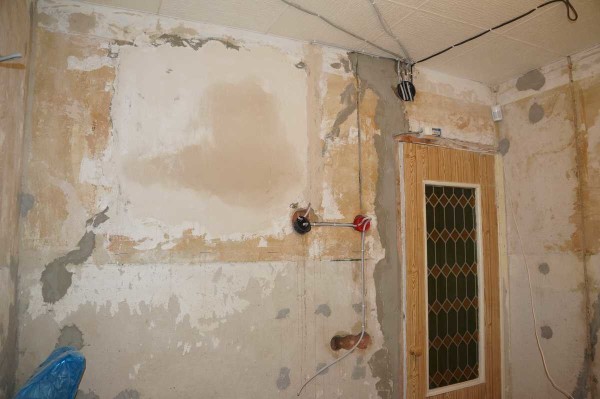
We just fix the wires on the ceiling - stretch ceiling
The walls are more or less even, so there is no need to plaster. Enough putty (how to putty walls read here).
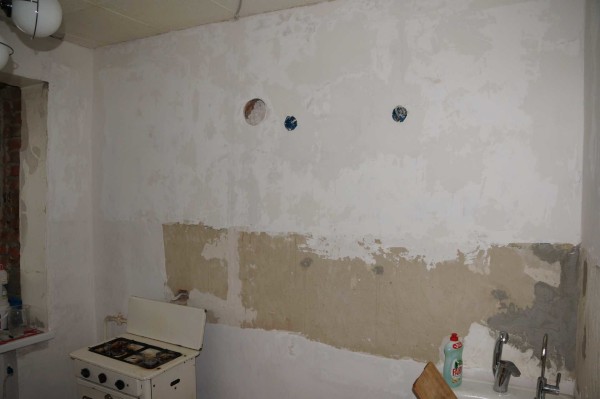
Second (they did not putty under the tile, since the differences are small, the glue will cope well with them
We put a plastic window and install the heating system.
In order to set the window sill to the desired height, the board was sawn into small blocks. With the help of wedges, the window sill was raised to a level. A load was laid on top (circles from a collapsible dumbbell), the gaps were filled with polyurethane foam. The foam was taken with a weak expansion - so as not to bend the window sill.
We continue to tidy up the walls. We put the apron tile. By level, we fasten the guides exactly to the horizon (it is better to have a drywall profile, since wooden planks are rarely perfectly even). Although the guide is needed only for a while, it must be fastened normally so that it does not move during operation. When laying the apron, simply support the tile on the exposed strip.
You can read about the types of kitchen aprons here.
We are starting to repair the floor. First, remove the old hardboard, then remove the paint from the wooden floor, level it. Long and dreary. There would be enough funds, it could be completely replaced, but left as it is.
We lay fiberboard, nail along the perimeter, and then staggered across the area. We spread linoleum on top.
Now it's the turn of the walls. It's simple - we glue the wallpaper.
The factory ordered spare parts from laminated chipboard... The edges were glued on their own. We take an iron, iron the edge, gluing it to the chipboard cut. Cool it with a wet rag, cut off the excess with a sharp knife, and level the edges with fine sandpaper glued to the bar.It turns out exactly like a factory edge.
After that, according to the drawings, we assemble the entire kitchen set. This is already from another opera, but in my case it was part of the renovation.
It was decided to make the dining table folding with a swivel mechanism. It unfolds along the long side of the tabletop, the two halves are fastened with ombre loops, there is a pivot point (in the photo where the transverse bar is visible) along which the tabletop rotates. When folded, the table is small, when unfolded it is twice as large.
While everything was being assembled, the facades arrived - MDF, covered with plastic in an aluminum frame. Nice and very reliable in terms of shock resistance.
Here is the renovation in the kitchen and finished. It was the turn of the balcony.
Repair on the loggia
It was decided to combine the loggia (7 sq. M.) With the room. With small areas, such an increase is very noticeable. First, they removed all the decoration, removed the old glazing. The parapet was left for now - for safety and started with leveling the floor for laying gas blocks.
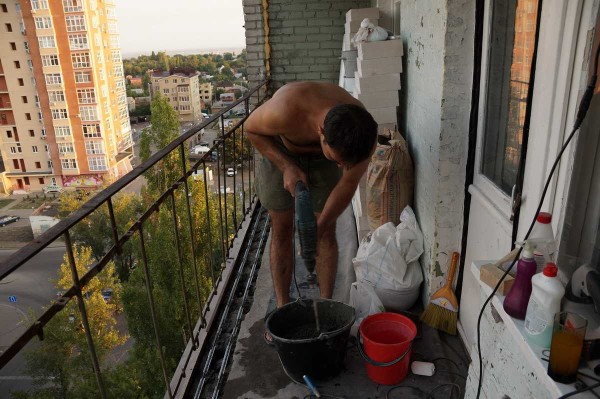
We level the floor along the edge of the loggia so that the wall of foam concrete blocks can be laid normally
When laying the walls, a reinforcing bar was laid through a row, the ends of the reinforcement were embedded in the walls. A groove is made under the reinforcement in the laid blocks, a bar (8 mm) is made into it, which is laid with glue. (Detail read about laying aerated concrete partitions here).
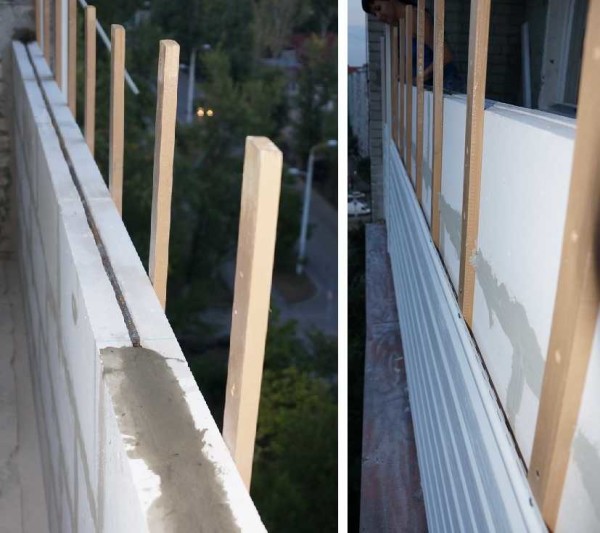
The partition on the balcony is made of aerated concrete blocks. Reinforcement is visible (in the photo on the left). In parallel, wooden planks were mounted on the outside, on which the siding was attached
Having laid out three rows of blocks, I fixed the planks outside - a crate for siding. I immediately attached siding to them. Then it will be problematic to do it. In the meantime, having tied himself with ropes to the block mounted in the wall (9th floor), he worked bent over. The wall is assembled quickly, as is the cladding on the outside.
A team from the company came and installed the windows. The window-to-wall joint is closed with a vapor barrier tape so that warm air does not enter the microscopic gap and condensation does not form there.
Insulation - extruded polystyrene foam - was purchased for the walls, ceiling and floor. We fix it on the walls with special plastic mushrooms, on the floor - on polyurethane foam. Since a wooden floor will be laid on top of the insulation, wooden mortgages are attached with a step of 60 cm, to which the logs will then be attached.
On top of the thermal insulation with penoplex glue with a lavsan heat-reflecting film. Foil-clad penoplex was recommended, but it was not available in stores. All surfaces are pasted over, except for the warm wall. On top of it, a crate is stuffed for finishing with plastic panels.
There will be a computer desk in one of the ends. At this point, plywood is attached to the wall. The table frame and monitor will be attached to it. We immediately pull electrical wiring, Internet cables to this place, install sockets. Then you can sew with panels.
Plastic paneling is one of the fastest and easiest operations in all repairs. We put the starting strip on the strip, insert the cut-to-size panel into it, shoot it to the slats with staples from a construction stapler. And so on.
One of the tasks is to correctly make the slopes of plastic It seems that it turned out well (how to make plastic slopes read here).
Let's get down to the floor. We put plywood on the penoplex, on it - another layer of penoplex, to which we attach the floor temperature sensor.
We roll it out on the floor and fasten the heating film onto double-sided tape. It should not be under the furniture, so the consumption is not too high. We install a thermostat on the wall.
If the laminate was to be laid, it would be possible to lay it directly on the heating foil. We will have linoleum, so we put another layer of plywood on top, and not linoleum.
Now it's time to remove the window side and balcony doors.
The remaining opening is refined with laminated chipboard. We do it according to the principle of slopes, we plant it on polyurethane foam. How to install slopes from chipboard or MDF read here.
Next, we assemble and install the furniture - they brought the cut parts, we also glue the edges, assemble.
Room
The doors were moved during the renovation. The partition is made of foam concrete blocks, so it was easy to cut a new doorway. The old one was laid with tongue-and-groove plates, fixed with metal strips and the joints were glued with a painting net.
The rest of the finish is uninteresting and standard: rip off old wallpaper, loose plaster. We prime, plaster in a new way and glue fresh wallpaper. In general, renovating the room turned out to be the easiest part.
The floor was level - plywood was laid on the screed, so this time we just lay the laminate on top. Easy, fast, dust free.
The last stage is the assembly of furniture. It was also developed in the same program, they ordered a chipboard cut to size. A wardrobe with sliding doors is installed in one wall from edge to edge.
I liked two "gadgets" - a retractable ironing board and a hanger for small things. Very convenient, by the way.
I brought the ordered corner sofa.
A free wall was taken under the shelves, cabinets, and a TV was also installed there.
That's all, the renovation in the small apartment is over. In terms of time, it turned out more than a year, but everything was done in one hand. The exception is stretch ceilings and PVC windows.

